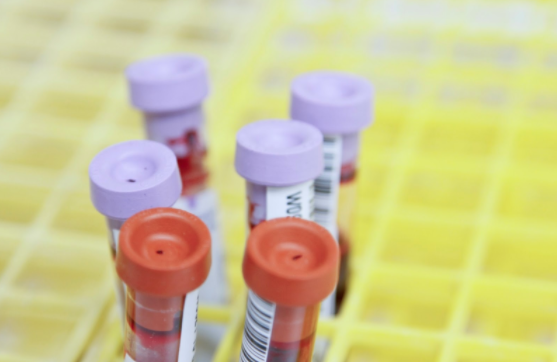Blood Test for Alzheimer's Diagnosis
- icshealthsciencejournal

- Aug 1, 2020
- 3 min read
Updated: Aug 2, 2020
Blood Test for Alzheimer's Diagnosis
Written By: Kandharika Bamrungketudom
August 1, 2020
A new blood test that was developed by an international team of researchers led by Lund University, Sweden, demonstrated the ability to detect the possibility of a person developing Alzheimer's disease very accurately, as early as 20 years before the onset of the disease. This study was published in the Journal of American Medical Association (JAMA) on July 29, 2020, and later was presented to the Alzheimer’s Association International Conference (AAIC).
Alzheimer's disease is associated with several molecular and cellular changes in the brain, which can be observed microscopically. Two of the prominent changes involve amyloid plaques and neurofibrillary tangles. Amyloid plaques, or more specifically, the beta-amyloid protein associated with Alzheimer’s, is formed from a breakdown of a larger protein and collects to form plaques in between neurons. One of the most toxic forms of beta-amyloid is called “beta-amyloid 42.” Neurofibrillary tangles, on the other hand, are clusters of a protein called tau that collect themselves inside neurons, creating tangles that interfere with nerve cells’ communication.
As of the present, the methods detecting Alzheimer’s before the onset can only be done using positron-emission tomography (PET) scans and from measuring amyloid and tau proteins in the cerebrospinal fluids (CSF). However, these methods are considered to be expensive and invasive. It should also be noted that the detection of amyloid proteins alone is not enough in identifying Alzheimer’s, since some people who have high levels of amyloid protein do not develop Alzheimer’s. The accurate method of assessment would be to test for both amyloid plaques and tau tangles.
Another method of analyzing a patient’s condition as having Alzheimer’s disease after the manifestation of the disease in the present is by clinical assessments of memory, cognitive impairment and interviews with family members and caregivers. These methods may be considered inaccurate in some cases, since doctors are not able to distinguish Alzheimer’s from other forms of dementia.
The blood test in this study is designed to measure a specific type of tau protein called “p-tau217.” Compared to other biomarkers, such as p-tau181, amyloid beta 42/40 ratio and neurofilament light chain, the test for p-tau217 could better distinguish Alzheimer’s from other neurodegenerative diseases. The study was carried out in a cohort of 1,402 people in three different groups from Sweden, Colombia and the U.S. The accuracy of the diagnosis using the p-tau217 test is found to be around 89 to 98 percent. Compared with the other techniques, the blood test is better at diagnosing than MRI brain scans, is as accurate as PET scans or spinal taps and is nearly as accurate as the most definitive method of autopsies. Therefore, this test is good for determining specifically if the neurodegenerative disorder a patient is experiencing is Alzheimer’s disease or not and may even be able to predict if a person with no symptoms will develop Alzheimer’s later in life or not.
Rudolph Tanzi, a professor of neurology at Massachusetts General Hospital and Harvard Medical School, who was not involved in this research, remarked that “it’s a big step forward.” He also added that the study would still need to be replicated in a larger population with more racial and ethnic diversity, refined, standardized, analyzed in labs and approved by federal regulators.
This type of test is expected to be available for use in around 2 to 3 years. Although it is not a cure or a treatment to Alzheimer’s but merely just a way of diagnosing Alzheimer’s patients, the healthcare system will benefit from this blood test all the same. Because of the low cost testing that the blood test provides, this could accelerate clinical trials for new therapies for Alzheimer’s, classify patients with dementia, as well as help families plan ahead after a diagnosis is given early on.







Comments